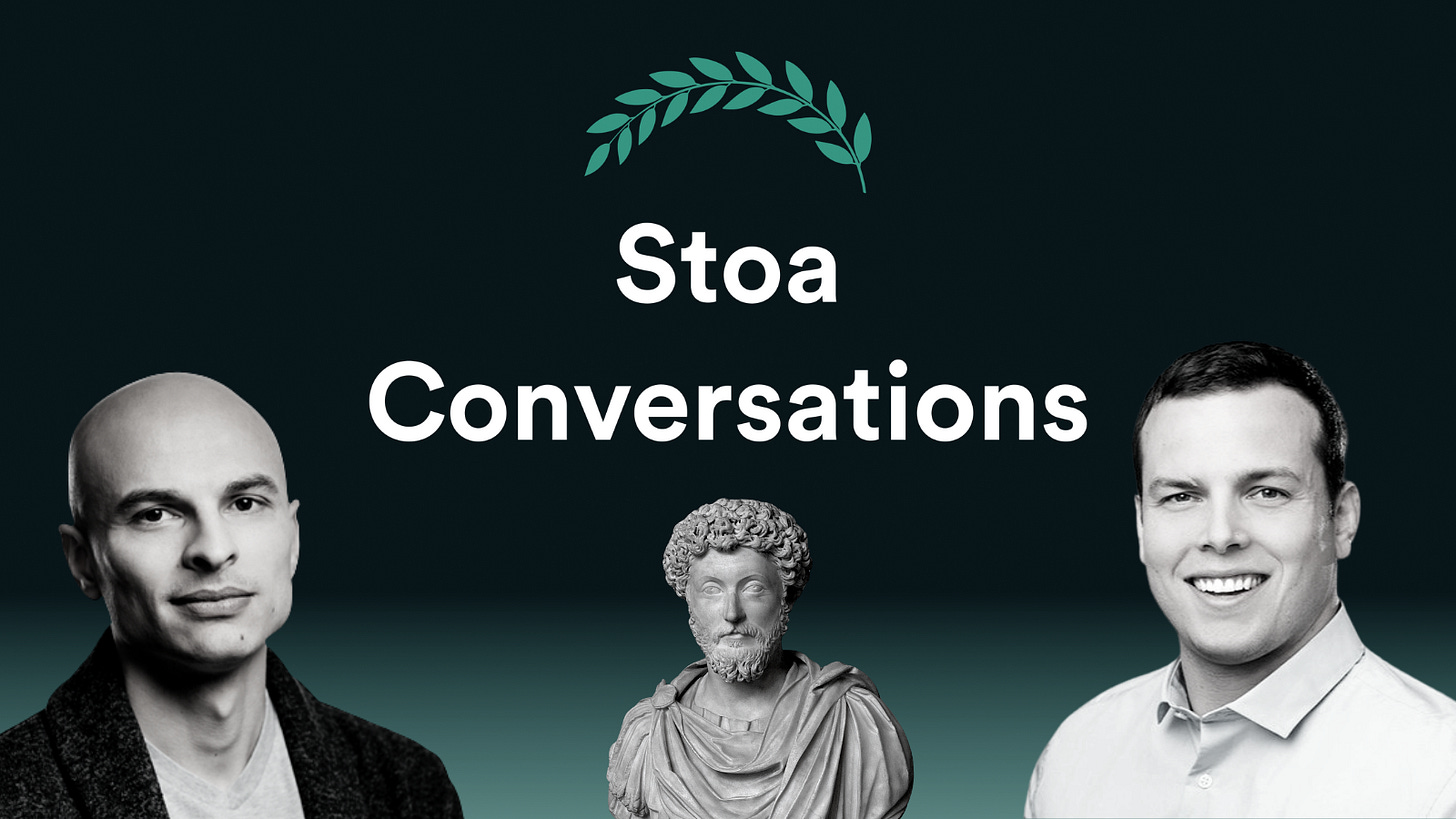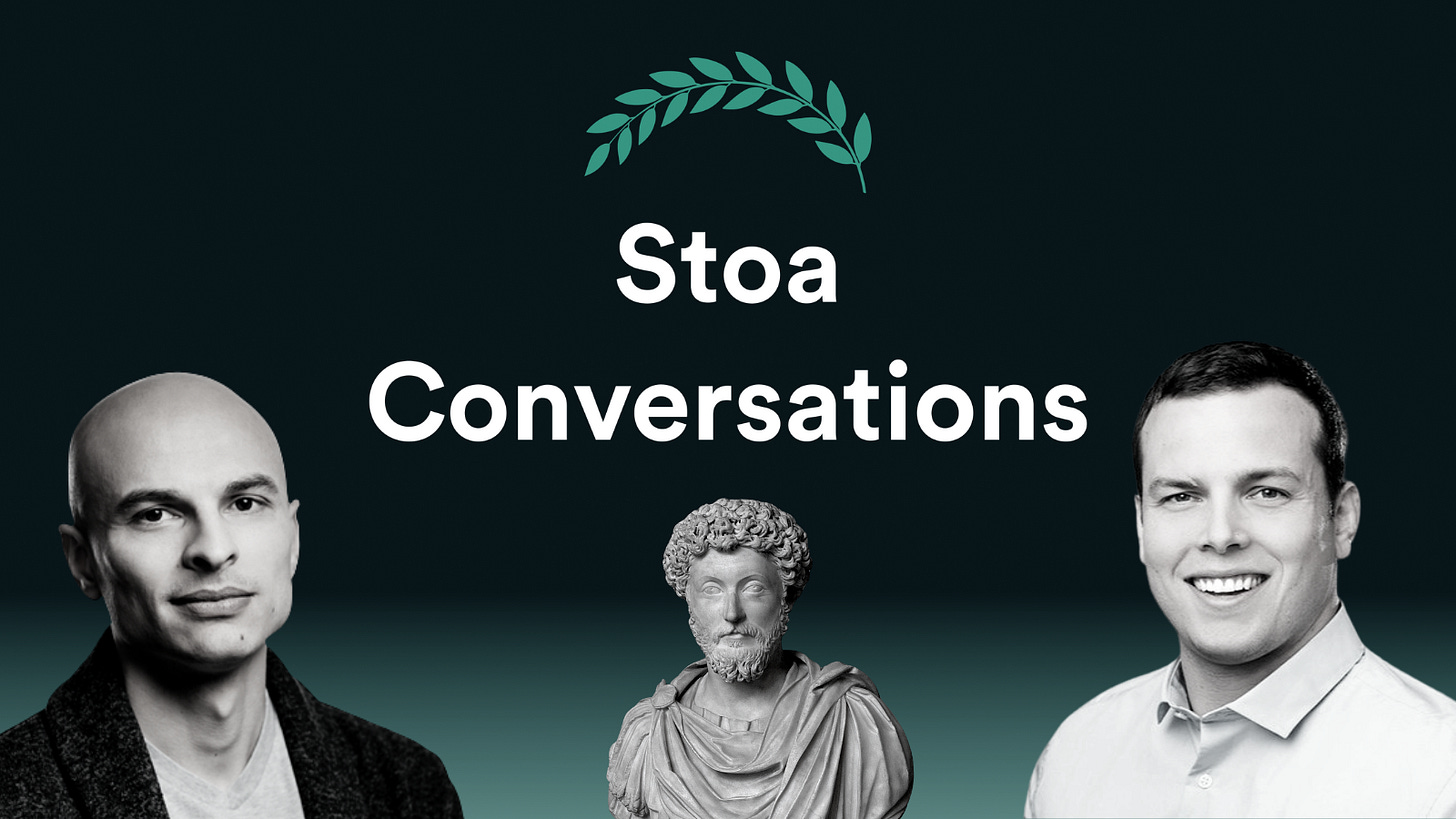Remind Yourself of This Every Morning
Stoicism in a paragraph
Welcome to The Stoa Letter, the newsletter on Stoic theory and practice.
Every week we share two emails to help you build resilience and virtue with ancient philosophy. Each email includes one meditation on Stoic theory, one action to do in order to become more Stoic, and links to the best resources we’ve found.
🏛️ Theory
Marcus Aurelius reminds himself to face each day with the following passage:
When you wake up in the morning, tell yourself: The people I deal with today will be meddling, ungrateful, arrogant, dishonest, jealous, and surly. They are like this because they can’t tell good from evil. But I have seen the beauty of good, and the ugliness of evil, and have recognized that the wrongdoer has a nature related to my own — not of the same blood or birth, but the same mind, and possessing a share of the divine. And so none of them can hurt me. No one can implicate me in ugliness. Nor can I feel angry at my relative, or hate him. We were born to work together like feet, hands, and eyes, like the two rows of teeth, upper and lower. To obstruct each other is unnatural. To feel anger at someone, to turn your back on him: these are obstructions.
Meditations 2.1
One could almost say that this short paragraph contains the entire philosophy of Stoicism.
Set your expectations.
Anger and frustration often stem from delusional optimism. We expect other people to act like competent & good people – but that’s just not the world we live in. When these assumptions are not met, we become upset.
People do wrong out of ignorance.
People are well intentioned. They do what is good, by their own lights. When they act poorly, they’re doing so out of ignorance.
Everyone shares the seed of virtue.
According to Stoic philosophy, we each have the ability to act virtuously. We all have the capacity for reason. Because of this we’re kin. In a deep sense, we share what is most important.
We cannot be harmed by anyone.
Stoics hold that a happy life is a virtuous one. Other people cannot make us act with vice, hence they cannot make us unhappy. The good and evil is found in what is up to us. Other people cannot touch our inner citadel, unless we let them.
We’re made to work together.
We’re deeply social creatures. We’re meant to live together, not alone. Our role is to take responsibility for what is up to us, and live well.
So, in a short paragraph we find the essence of Stoic theory and practice. It starts in an almost pessimistic way. Marcus Aurelius brings to mind other’s shortcomings. However, it ends on a brighter one. We can live well with others and pursue happiness regardless. See others as companions and always focus on what is up to you: your decisions and judgments.
🎯 Action
Remind yourself to expect adversity from others – but also that you can stay connected with them nonetheless.
🔗 Links
🎧️ Michael and I celebrated 100 episodes of Stoa Conversation last week. To do that, we read through and analyzed Meditations 2.1. Check out it and dive deeper with us into this central Stoic quote:

Remind Yourself Of This Every Morning (Episode 100)
Learning from Marcus Aurelius’s notes to himself
stoameditation.com/blog/remind-yourself-of-this-every-morning-episode-100

📔 Learn more about Marcus Aurelius.
🧑🏫 Free workshop.
🌍️ Brittany Polat writes on Stoic Philosophy on community and connection:
“We are all, to use a popular phrase, made of stardust—all made of a similar substance and all returning to a similar substance after our death. We are all participants in the larger system of the world and contribute to its wellbeing (or lack thereof). Understanding this interconnectedness is fundamental to developing a proper relationship with other people and with the natural world. We are neither more important nor less important than others; rather, we are all important parts of the larger system.”
What did you think about today's letter?
🏆️ Share The Stoa Letter
If you find what we’re doing useful, please share it. Just have people sign up with your link below.
Share The Stoa Letter
{{rp_personalized_text}}
Or copy and paste this link to others: {{rp_refer_url_no_params}}
Get hundreds of Stoic meditations and lessons with the Stoa app (free download)

